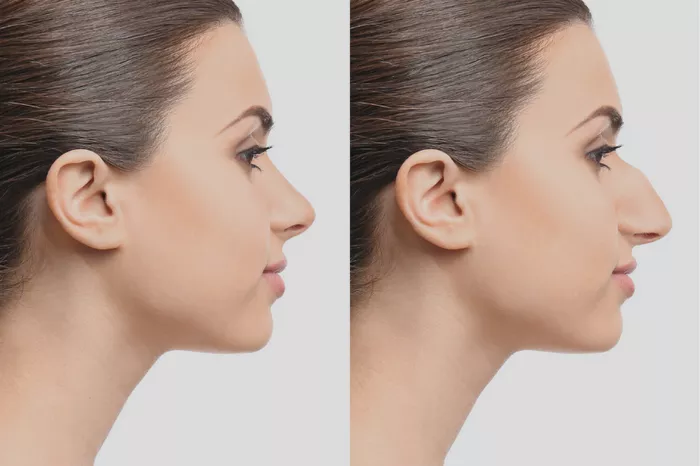A nose job, or rhinoplasty, is a surgical procedure that alters the shape and structure of the nose. It is a common cosmetic procedure sought by individuals who wish to enhance their facial aesthetics or correct functional issues related to the nose. If you’re considering a nose job at 18, it’s important to understand the considerations, guidelines, and potential benefits and risks associated with the procedure. In this article, we will explore whether getting a nose job at 18 is feasible and what factors should be taken into account.
Understanding Rhinoplasty
Rhinoplasty is a surgical procedure performed by a qualified plastic surgeon to modify the size, shape, and proportions of the nose. It can address various concerns, including:
Cosmetic Enhancement: Rhinoplasty can improve the overall appearance of the nose, such as refining the nasal tip, reducing the size of the nose, straightening a crooked nose, or reshaping the bridge.
Functional Improvements: In some cases, rhinoplasty is performed to correct functional issues that affect breathing, such as a deviated septum or nasal valve collapse. These functional improvements can have a positive impact on overall well-being.
Considerations for Getting a Nose Job at 18
Physical Maturity: The nose continues to develop and change until early adulthood. It is important to ensure that the nose has reached sufficient physical maturity before considering a rhinoplasty. Most experts recommend waiting until at least 18 years of age when the growth plates in the nose have typically fused. However, every individual is different, and it is essential to consult with a qualified plastic surgeon to assess your specific situation.
Emotional Maturity: Undergoing any surgical procedure requires emotional maturity and a realistic understanding of the potential outcomes. It is important to have clear and realistic expectations and be mentally prepared for the process, including the recovery period and potential changes to your appearance.
Motivation and Communication: It is crucial to have a strong motivation for seeking a nose job and to be able to effectively communicate your goals and concerns to the plastic surgeon. Open and honest communication with your surgeon will help ensure that your expectations align with the possible outcomes of the procedure.
Support System: Having a strong support system, including family and friends, can provide emotional support throughout the decision-making process and during the recovery period.
Health Status: It is important to be in good overall health before undergoing any surgical procedure. Your surgeon will evaluate your medical history, perform a physical examination, and may request additional tests to ensure you are a suitable candidate for the surgery.
The Importance of Choosing a Qualified Surgeon
Selecting a qualified and experienced plastic surgeon is crucial to achieving the desired results and ensuring your safety throughout the procedure. Consider the following when choosing a surgeon:
Board Certification: Ensure that the surgeon is board-certified in plastic surgery. Board certification indicates that the surgeon has undergone rigorous training and has met the standards set by the appropriate governing body.
Experience: Inquire about the surgeon’s experience specifically in performing rhinoplasty procedures. Ask to see before-and-after photos of previous patients to assess the surgeon’s skill and aesthetic outcomes.
Patient Testimonials: Read reviews and testimonials from previous patients to get a sense of their experiences with the surgeon and the overall satisfaction with the results.
Open Communication: Choose a surgeon who listens to your concerns, takes the time to answer your questions, and provides clear explanations about the procedure, risks, and potential outcomes.
Facility Accreditation: Verify that the surgical facility where the procedure will be performed is accredited and meets the necessary safety standards.
Benefits and Risks of Rhinoplasty
Benefits of rhinoplasty:
Enhanced Facial Harmony: Rhinoplasty can improve facial symmetry and harmony by bringing the nose into better proportion with other facial features.
Improved Self-Confidence: Correcting aesthetic concerns or functional issues with the nose can enhance self-confidence and self-esteem.
Correction of Breathing Issues: Rhinoplasty can address structural problems that may obstruct normal breathing, leading to improved overall respiratory function.
Risks of rhinoplasty:
Potential Complications: As with any surgical procedure, rhinoplasty carries certain risks, including infection, bleeding, adverse reactions to anesthesia, scarring, asymmetry, and changes in sensation.
Unsatisfactory Results: While skilled surgeons strive for optimal outcomes, it is important to recognize that individual healing and response to surgery can vary. In some cases, the desired results may not be fully achieved.
Recovery Period: Rhinoplasty requires a recovery period during which you may experience swelling, bruising, discomfort, and restricted activities. It is important to follow your surgeon’s post-operative instructions to ensure proper healing.
Consultation with a Plastic Surgeon
If you’re considering a nose job at 18, it is crucial to schedule a consultation with a qualified plastic surgeon. During this consultation, the surgeon will:
- Evaluate your physical health and determine if you are a suitable candidate for the procedure.
- Assess your nasal anatomy and discuss your goals and expectations.
- Explain the surgical techniques, potential risks, and expected outcomes.
- Address any questions or concerns you may have.
- Provide you with realistic expectations regarding the results of the procedure.
Conclusion
Getting a nose job at 18 is a possibility for those who meet certain criteria. Physical and emotional maturity, realistic expectations, and good overall health are important considerations. Choosing a qualified and experienced plastic surgeon and engaging in open communication throughout the process are crucial for achieving satisfactory results. By understanding the considerations, guidelines, benefits, and risks associated with rhinoplasty, you can make an informed decision and determine if a nose job is the right choice for you at this stage of your life.


